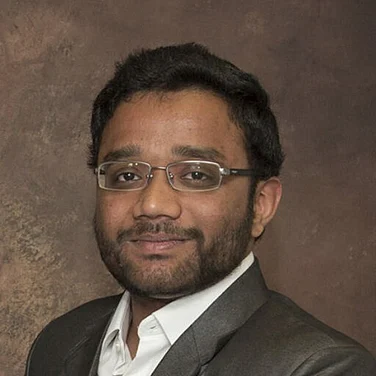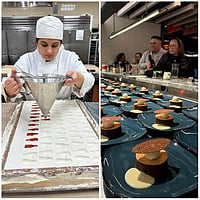Inside CynLr’s Bengaluru lab, nothing begins with tools or frameworks. Everything begins with a question. That culture comes directly from the man who designed the company’s hiring philosophy. Gokul N A, Founder, treats recruitment as a scientific inquiry rather than a staffing exercise. His approach has created one of the most selective hiring pipelines in Indian technology and is the backbone of the company’s attempt to crack what robotics researchers call the Holy Grail of Object Manipulation.
Gokul’s premise is simple. If an unsolved global problem has survived 40 years of research, it will not yield to standard interviews or algorithm rounds. It will only yield to people who can question assumptions at the deepest level. Most engineers are trained to solve framed problems. CynLr is searching for those rare individuals who can question the frame itself.
Why CynLr Rejects the Traditional Tech Playbook
CynLr is not building applications on top of TensorFlow or OpenCV. It is rebuilding the foundations. The company creates its own sensing architecture, its own imaging systems, its own computational models. Gokul explains this through a single example. A robot today still cannot reliably insert a screw into a hole without slipping a thread. If such a simple act remains non automatable, he argues, the issue is not tooling. It is the way the problem has been understood.
From this reasoning flows the company’s hiring logic. To solve a problem this fundamental, CynLr must recruit people who think at the level of physics, perception and human cognition. Framework fluency is not enough. This is why the company’s acceptance rate sits at 0.1 percent and why the team insists that the number is a consequence, not an ambition.
The Skill Wheels: A Cognitive Map Designed by Gokul
To make hiring scientific, Gokul designed what he calls the Skill Wheels. It is a visual map that identifies the mindset required to rethink robotic vision from the ground up. At the centre is Systems Thinking, which he considers non negotiable for every role. The next ring carries foundational disciplines such as neuroscience of vision, computer architecture and core programming. The outer rings capture implementation ability.
This framework forces the team to look for identities rather than resumes. It also reveals something unusual. CynLr treats subjects such as evolutionary biology and human perception as equal in importance to software engineering. Gokul believes that any attempt to replicate human vision in machines must begin with understanding how biological vision evolved.
The Three Filters That Shape Every Hiring Decision
CynLr evaluates candidates through three cognitive filters. Each one reflects how Gokul himself approaches scientific work.
Critical Thinking. The ability to recognise one’s own assumptions. He argues that modern engineering fails not because information is scarce but because people do not interrogate the biases hidden in their first perceptions.
Systems Thinking. The discipline to define the real system behind a problem before attempting solutions. Gokul often notes that premature optimisation is not a coding issue but a thinking issue. Solving the wrong problem is the fastest way to delay a breakthrough.
Design Thinking. A deep reading of human limitations, effort and error. CynLr believes intelligent robotics is not only a mechanical or computational problem. It is a human problem. A machine that works flawlessly in theory but fails in a factory does not count as intelligence.
These three filters determine whether someone can tackle a problem that has resisted the world’s best researchers for decades.
Tests That Look More Like Research Than Interviews
In place of coding puzzles, CynLr uses handwritten physics challenges. Applicants must reason about how light interacts with surfaces, how forces behave during manipulation, and how geometry shapes depth perception. The company’s rationale is direct. Vision is physics. Manipulation is physics. Any engineer who cannot work through these questions on paper will not be able to push the science forward.
Candidates then receive what the company calls Industry Challenges. These are not hypothetical tests but real problems that the team is stuck on at that moment. This offers the candidate a genuine preview of the work. It also reveals how they ask questions, think through ambiguities and reason about the unknown. On rare occasions, applicants have even contributed insights that moved the product ahead.
A Year of Training to Unlearn and Rebuild
Gokul often says the most difficult part of building a deep tech company is not hiring but unlearning. Modern ML and robotics education is designed for jobs that integrate mature libraries. CynLr’s work demands questioning those very libraries. New hires therefore spend almost a year in structured learning, discovery and application. The first phase focuses on clearing out assumptions. Only later do they learn skills.
For Gokul, this is not a cost but an investment. The company cannot buy the required talent pre trained. It must cultivate it from raw cognitive material.
Employees rate the company 4.7 out of 5 on Glassdoor with complete CEO approval. This suggests that once candidates survive the intellectual rigor, they find a culture that matches their expectations and rewards their curiosity.
A Hiring Model Built for Problems That Have No Precedent
Gokul’s philosophy raises an uncomfortable question for Indian deep tech. Can India produce enough talent trained to think at the level required for frontier robotics. CynLr’s answer is clear. If the education system does not produce this talent, the company must create it itself.
This model will not work for most companies. It is not designed for velocity. It is designed for breakthroughs. It is the hiring equivalent of long form research. Every candidate who clears it becomes a force multiplier inside the team because they share a way of thinking that is rare in industry.
Why CynLr Believes This Is the Only Viable Path
CynLr’s own progress offers validation. The company has secured partnerships with global manufacturers, demonstrated its systems at international forums and attracted funding for one of the most ambitious robotics projects in India. All this has been achieved by a team smaller than many corporate engineering departments.
The founders credit this to one factor. A small number of people who think with exceptional clarity often outperform large teams built around standard skill sets.
What Gokul Wants Candidates To Understand
Gokul’s closing message is straightforward but absorbing. The work is hard. The evaluation is hard. The training is hard. None of it is designed to intimidate. It is designed to filter for people who are energised by difficult problems, not discouraged by them.
If you are the kind of person who wants to question the foundations of vision, physics and intelligence, CynLr believes you will find a home there. If not, you will discover it in the interview itself.
And in Gokul’s view, even that learning has value.
Gokul N A: The Mind Behind CynLr’s Scientific Hiring Culture
To understand CynLr’s radical hiring philosophy, one must understand the mind that built it. Gokul N A, Founder – Design, Product & Brand at CynLr, is not a conventional technologist. Based in Bengaluru, India and active across India, Switzerland, and the United States, he represents a rare intersection of engineering depth, cognitive curiosity, and design-driven thinking. With 15+ years of experience in robotics, machine vision, industrial automation and deep-tech product engineering, Gokul has spent his career questioning what most engineers take for granted.
Gokul completed his Bachelor of Technology at Amrita School of Engineering, but his real education began in the field. He started his career at National Instruments (2012–2015), where he worked as an Architect for Design and Algorithms in Machine Vision. During this period, he designed over 40 advanced vision systems for global automotive giants like Jaguar and Land Rover, while training more than 50 vision engineers across Europe, Taiwan and India. This early phase shaped his belief that machine vision is less about code and more about understanding how perception fundamentally works.
From 2015 to 2019, he ran Vyuti Systems, a consulting practice focused on solving complex vision problems that traditional industrial automation could not handle. These years refined his systems-thinking approach and exposed him to the structural gaps in robotics—gaps that no amount of incremental engineering could solve.
This journey culminated in co-founding CynLr in 2019, with the mission to build visual object intelligence that can enable universal manufacturing systems. Under his leadership, CynLr developed the CLX visual intelligence platform and the CyRo robotic system, both inspired by neuroscience and designed to manipulate unfamiliar objects without prior data or training. His work has earned global recognition: CynLr was selected as a World Economic Forum Technology Pioneer 2025, one of only ten Indian companies among 100 global winners. The company has raised $15.2 million, including a landmark $10 million Series A, and has been featured in Business Today, Machine Design Magazine, and showcased at the Robotics Summit & Expo in Boston and Swiss-Indian Innovation Week.
As a leader, Gokul oversees CynLr’s product architecture, research direction, cross-continental collaborations (including EPFL’s LASA Lab and CSEM, Switzerland), and the long-term design of multi-sensory vision systems. He is also deeply involved in brand and narrative building—ensuring that complex deep-tech ideas can be understood by global customers.
His mission is clear: to build robotic intelligence that understands and manipulates the physical world with the generality, adaptability, and perception of humans—unlocking the future of universal manufacturing.


















